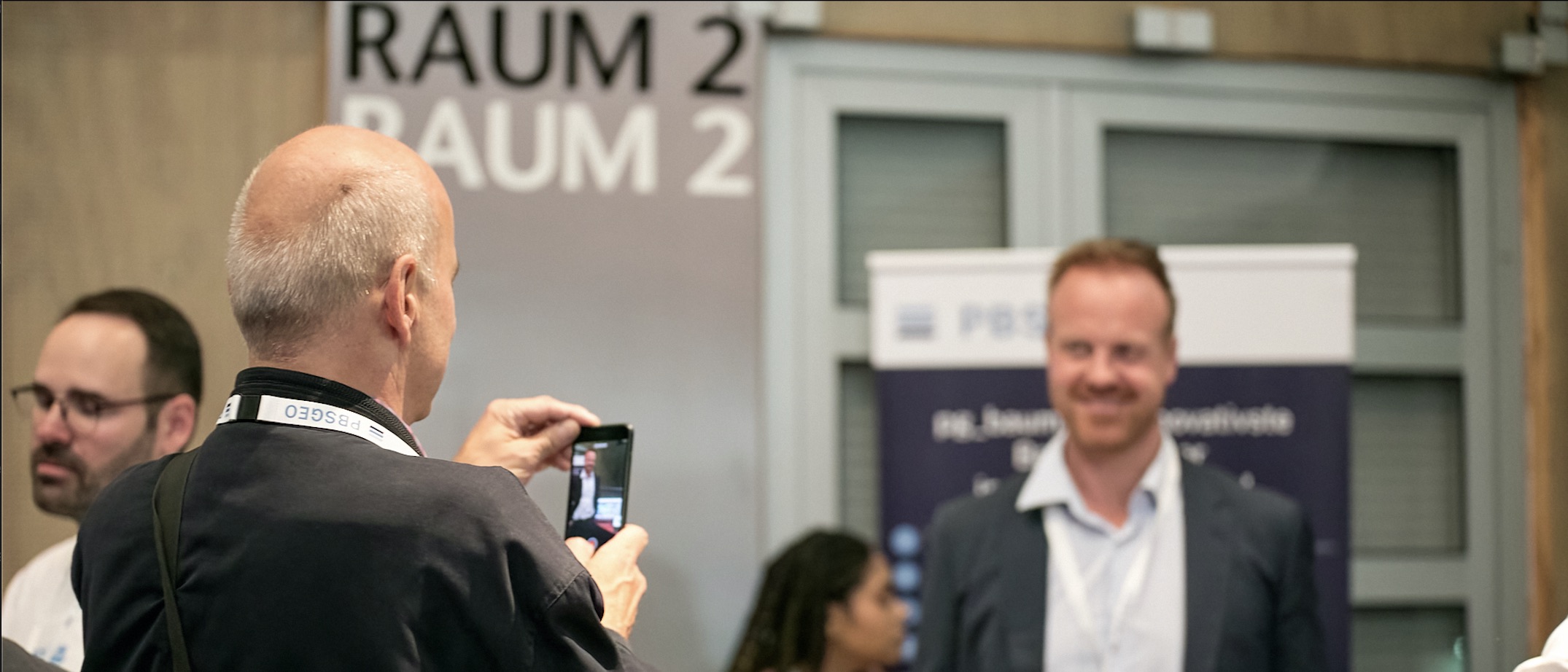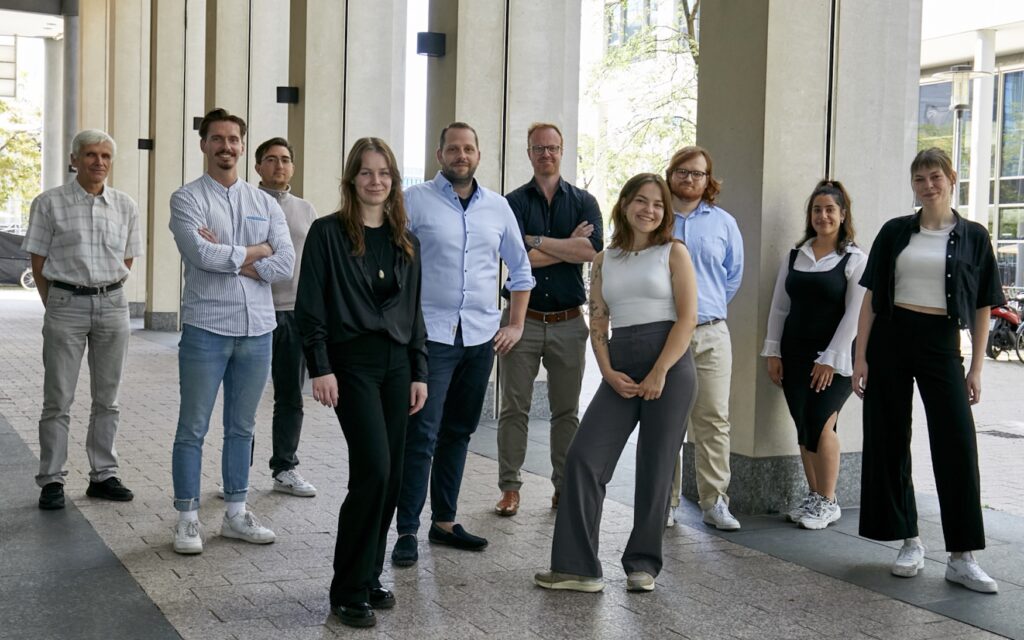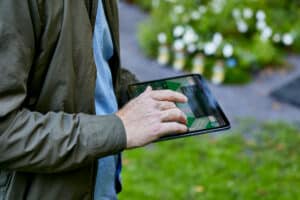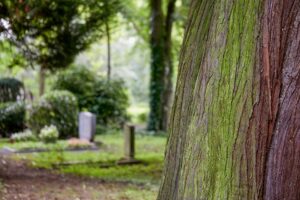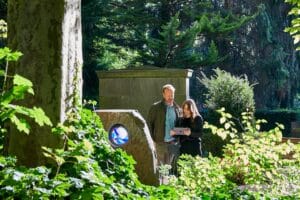The “Digital Cemetery” Symposium at the Cologne Mediapark pondered the societal shift in mourning and remembrance.
From mountaineering to ultramarathons – Lieselotte Müller, a housekeeper who lived from 1934 to 2017, had a penchant for extreme sports. Particularly notable was a skydiving jump from 4100 meters high that she accomplished at an advanced age. This information can be found on the website “melaten.friedhofsplan.de,” which provides information about selected graves in Cologne’s largest cemetery, including texts and images of the individuals who found their final resting place there.
However, unlike Alfred Biolek, Willy Millowitsch, and Guido Westerwelle, whose graves are also marked with an asterisk on the digital cemetery plan and can be clicked on for further details, Lieselotte Müller never existed. The extreme athlete was invented by the Cologne-based company “PBS Geo” to demonstrate how less prominent individuals can also be honored on such a plan. The framework is provided by the two-day “Digital Cemetery” symposium, organized by the company at the “Komed” in the Mediapark. It is aimed at senior staff from public, church, and privately organized cemetery administrations. Around 120 participants from all over Germany attended.
Graves are displayed on a digital map
A digital cemetery plan, referring to physically existing graves, should not be confused with a “virtual cemetery,” a website where memorial pages are set up as “online graves” for the deceased. Therefore, Stefan Schumacher, CEO of “PBS-Geo,” refers to the application developed by his company as a “digital twin” of the real grave site.
For example, Wipperfürth introduced a “digital grave information system” with the help of “PBS Geo” in 2020. You simply enter the name of the deceased in a search field, and the desired grave is displayed on the map. The CEO says that people working in the cemetery also benefit from the orientation aid.
The software company, considered a leader in its field in the German-speaking world, has developed other applications, such as for managing public green spaces and tree stocks. According to Schumacher, the company has more than 100 customers, including Frankfurt/Main, Recklinghausen, Erfurt, and Schwerin. He says they are “in touch” with the city of Cologne. In Montabaur, Rhineland-Palatinate, “PBS Geo” implemented a special project: A student working group researched the life stories of fallen soldiers buried in the “Ehrenhain,” and the results were incorporated into the municipality’s online cemetery plan.
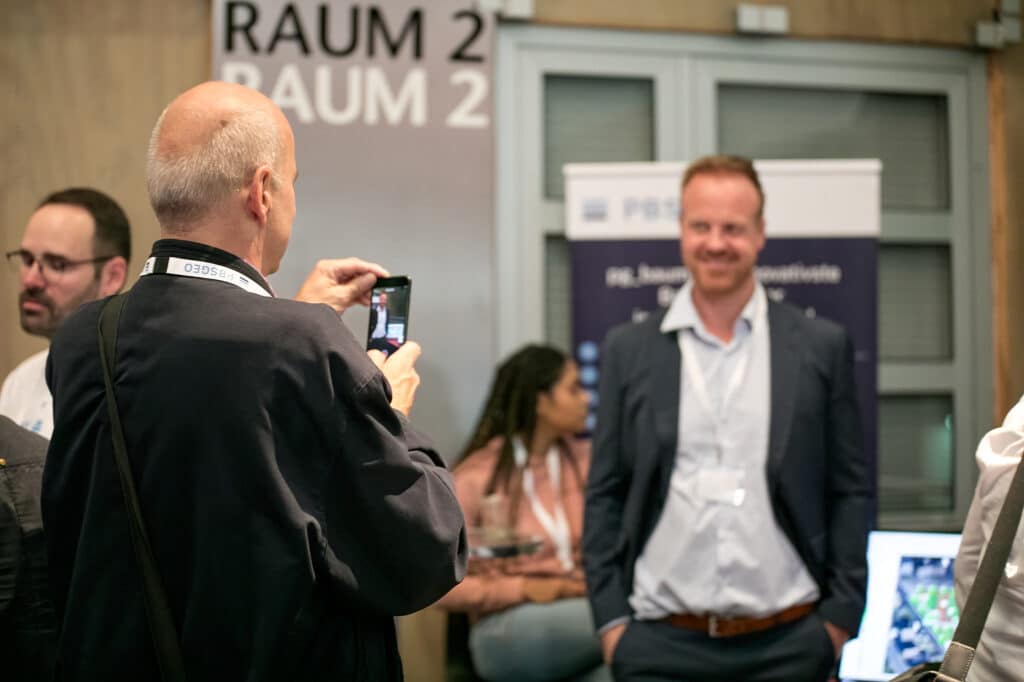
Artificial intelligence can digitally “resurrect” the dead
In addition to such plans and the digital processing of culturally significant graves, the conference also addressed online grave reservation and data protection in cemetery and funeral services. On the first day of the event, Thursday, Thorsten Benkel, a sociologist from the University of Passau, made it clear in a lecture that digitalization is changing the “rituals of farewell and preservation.”
An example of the new forms of mourning is the conversion of deceased individuals’ Facebook profiles into memorial pages. Another example is mourning videos found on YouTube. Some go so far as to show people, with their consent, dying – as a legacy to future generations. It is now even possible to digitally “resurrect” the dead: With the help of artificial intelligence, lifelike “avatars” of deceased individuals can be created.
Benkel presented a video from South Korea showing a grieving mother, equipped with virtual reality glasses and data gloves, seemingly reuniting with her deceased daughter and embracing her. The change in mourning culture, however questionable some of the new forms may be, cannot be stopped, said the sociologist. This includes the “liberalization of funeral culture,” in which Germany is lagging behind. A clear trend is “moving away from the grave.” At the same time, Benkel emphasized that the “meeting point for the bereaved” in the cemetery remains important. The smartest approach is to “connect offline and online.”
In this spirit, after the lecture, there was an excursion into the analog world. Accompanied by tour guide Günter Leitner, who moderated the symposium, and Armin Beuscher, former community pastor in Lindenthal, the participants explored the Melaten cemetery in two groups.
Source: Kölner Stadtanzeiger, Clemens Schminke, October 13, 2023
